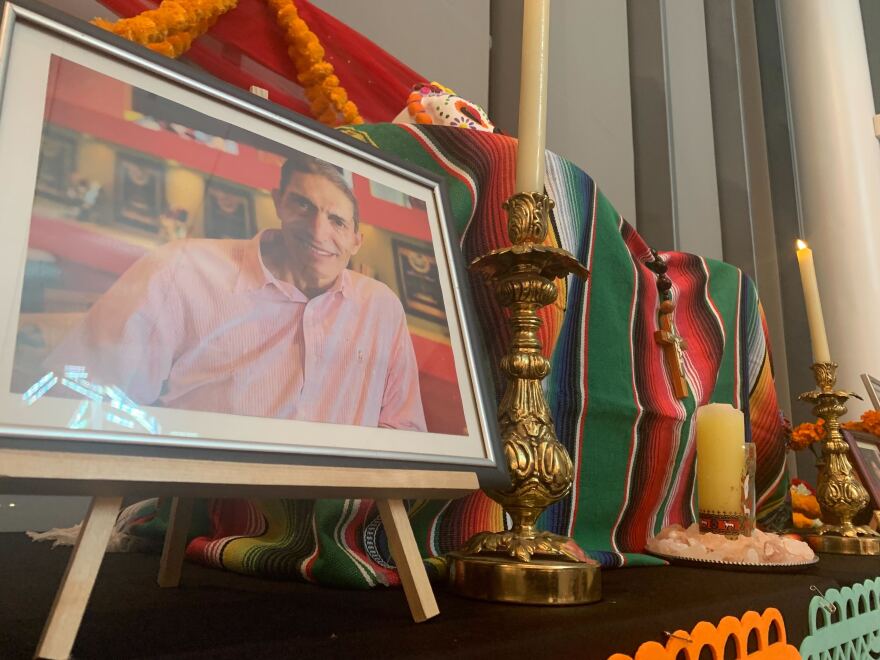Growing up in Louisville, Mexican-American Marcos Gutiérrez said death was always a lingering subject on his mind.
Gutiérrez, a program coordinator at the University of Louisville Cultural Center’s Hispanic, Latinx and Indigenous Initiatives, was raised Catholic, and he said his parents saw Dia De Los Muertos as less of a celebration and more like “witchcraft.”
As an adult, he said he’s now rediscovering and reclaiming the day..
“Day of the Dead recognizes that though people are no longer here physically, we are spiritual beings. And the line between physical and spiritual is actually very thin,” Gutiérrez said.
On Dia De Los Muertos, people don’t mourn. Instead, they celebrate the human spirit.
The popular Mexican festival has its roots in a tradition first practiced by indigenous peoples such as the Aztecs and the Toltecs thousands of years ago. They didn’t consider death the end of one’s existence, but simply another chapter of life.
On Thursday night, participants kicked off the celebration with a procession of catrinas — girls and women wearing skull makeup and flowing dresses with flowers atop their hair — an iconic symbol of the festival.

The Speed Museum hosted the celebration with the U of L Cultural Center and local nonprofit La Casita Center, which serves Hispanic and Latinx communities in the city.
The procession was followed by a remembrance ritual and song and dance to remember loved ones.
The centerpiece of the festival is the ofrenda, a vibrant altar filled with photos of the departed, their favorite foods and calaveras, or sugar skulls.

Gutiérrez said he’s seen the festival resurface in a big way in Latinx communities in the U.S. over the past decade.
He said he’s seen his relatives observe the festival, “but it was something that you weren't out and loud and proud about doing.”
Gutierrez said his Catholic mother wanted him to make sure he stayed connected to something.
“Coming from rootless people who don't have connection to their land on a day-to-day basis, I think that is extremely hard on the spirit especially,” he said.
For him, it’s about remembering the spirits of those who come before him. He said he does that every day.
“It's just during this time that I get to do it with an altar, and I get to do it in a more intentional collective space,” Gutiérrez said.

Eva Melisa Astudillo Sotelo moved from Mexico to Louisville five years ago.
She decorates her memorial altar with marigolds, photos of loved ones, glasses of water with salt to quench the thirst of spirits moving through the world, and their favorite foods.
At the ofrenda at the Speed Museum event, Sotelo honored her friend Saul Garcia.
Garcia owned Los Aztecas restaurant and passed away in 2021 from pancreatic cancer.
She recalled him as a friend who was loved by the Latino community.

“He supported the community tremendously through all the times, even through COVID. He was one of the persons who was always campaigning, volunteering, working for the community,” she said.
For Sotelo and others who celebrate, the catrinas aren’t scary. They depict souls that would help and guide them when it’s their time to depart.
“It's almost like a sister who will hug you through the journey, so you don't feel alone,” she said.
The Speed Museum is a sponsor of Louisville Public Media.





